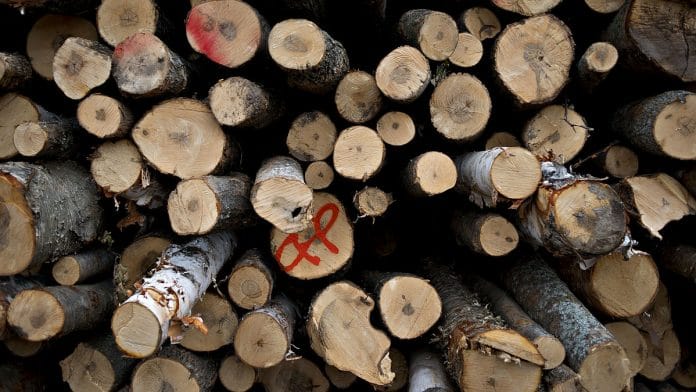New Delhi: India is set to move a proposal at the conference of the Convention of International Trade of Endangered Species of Flora and Fauna (CITES), being held in Geneva Wednesday, to delist timber as an exotic and endangered plant species.
In its 2016 conference, CITES — an international agreement between governments, which regulates trade in endangered specimens of wild animals and plants — had decided that shisham (North Indian Rosewood), a kind of timber, will be protected under its rules.
The move — opposed by India back in 2016 also — made trade in certain kinds of timber illegal without a CITES permit.
Earlier this year, the Union ministries of agriculture and commerce wrote to the environment ministry asking it to move a proposal delisting timber as an endangered species under CITES.
According to sources in the environment ministry, the decision to move this proposal comes as a result of major losses incurred by artisans in the face of curbs on trade of artefacts and objects made of timber.
Why this proposal?
A senior official in the Ministry of Environment and Forests told ThePrint, “India is trying very hard to delist timber from endangered species because our artisans and farmers have suffered major losses after the CITES decision in 2016… Our woodwork industry which was so crucial to our exports has suffered tremendously in the last few years.”
“India will move the proposal in Geneva on Wednesday,” added the official who didn’t wish to be named.
Native to tropical monsoon forests of south-east India, shisham is one of the most commonly used timber species in India. Used for making a range of products including furniture, tobacco pipes, marine and aircraft grade plywood, cabinets, ornamental turnery and sporting goods, among others, the decision to regulate its trade threatened the livelihoods of scores of artisans and skilled workers.
Not the first time
This isn’t the first time that India would be pushing the international community to lift the restrictions on shisham trade. In 2016, the Export Promotion Council of Handicrafts had expressed its reservations to the CITES Secretariat in Geneva through India’s Permanent Mission in the Swiss city.
In 2017, India told the member countries that it is managing the population of the wild timber species under its own forest laws, and the curbs on international trade were unnecessary.
Also read: Brazil’s president wants to deforest the Amazon, and the UN has few options to stop him






